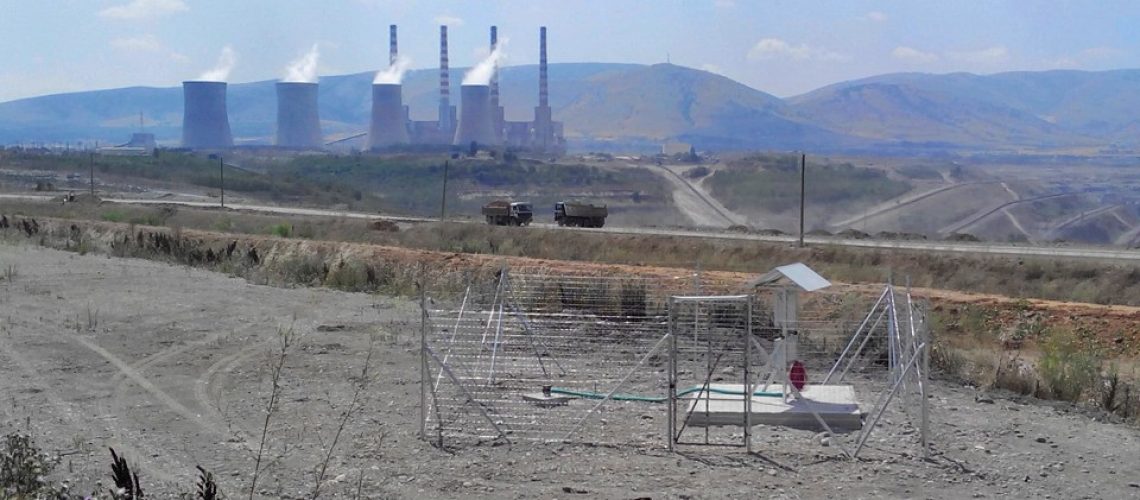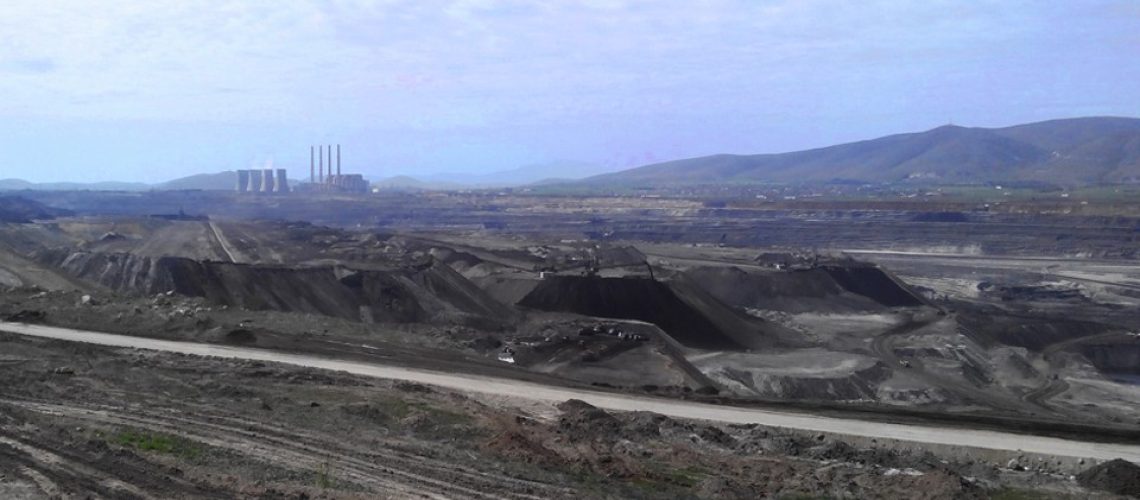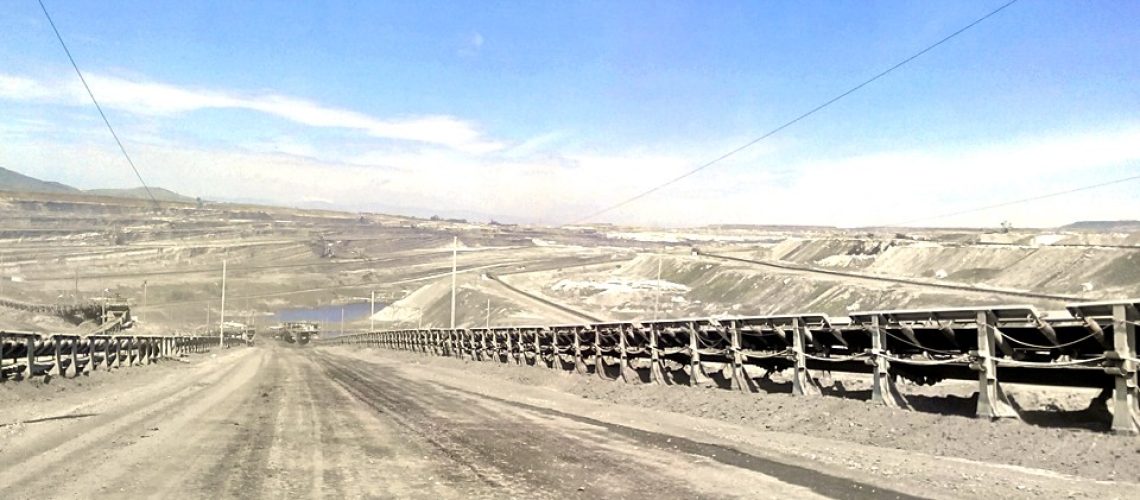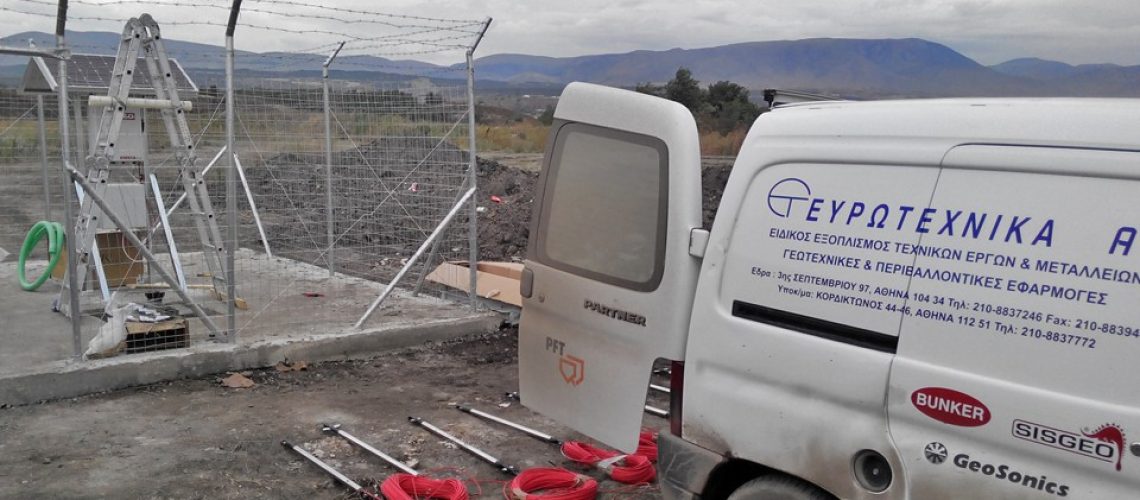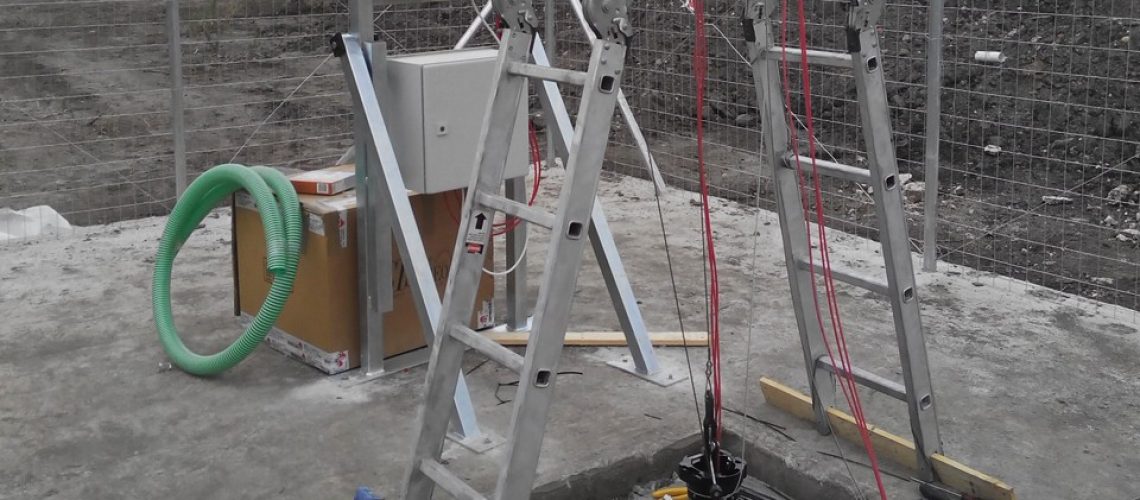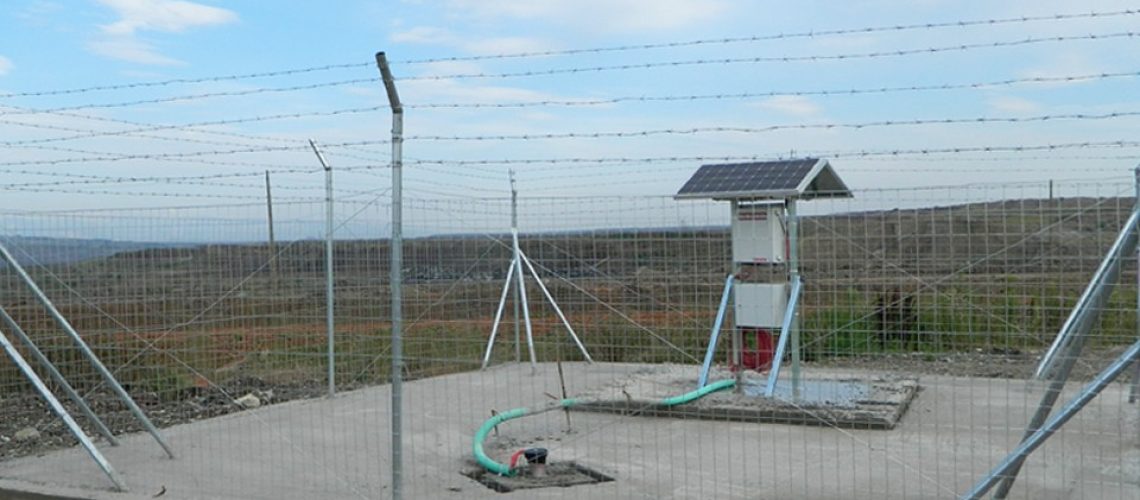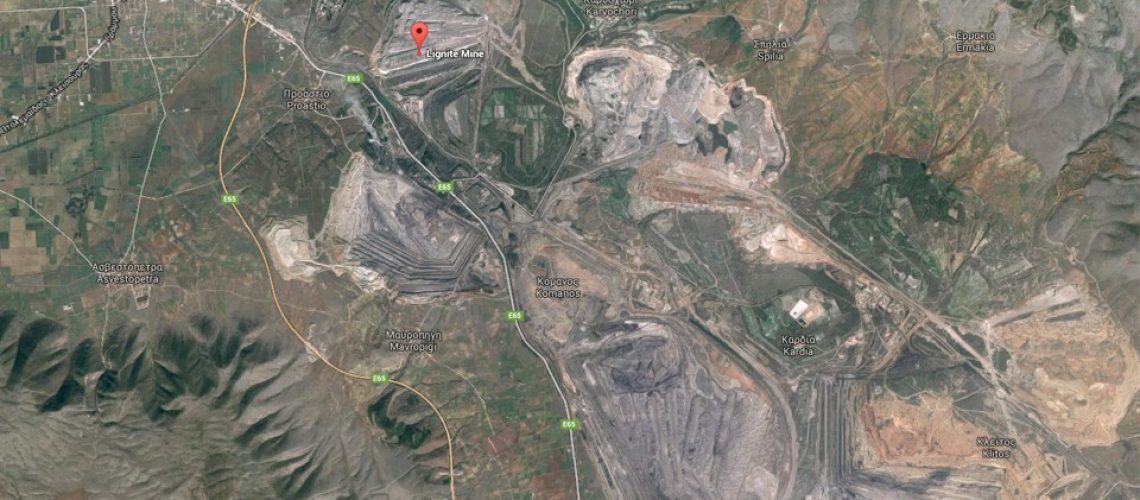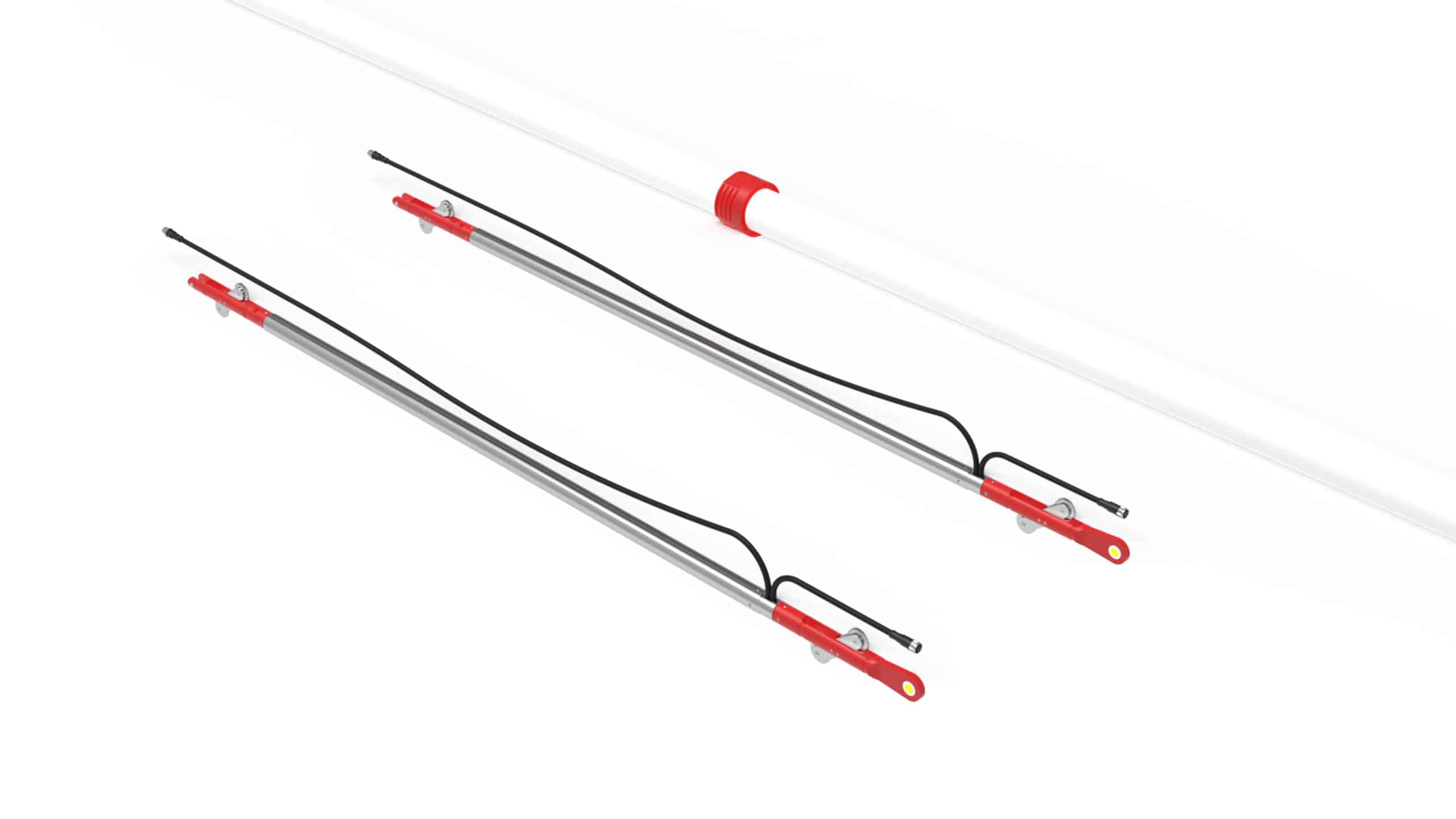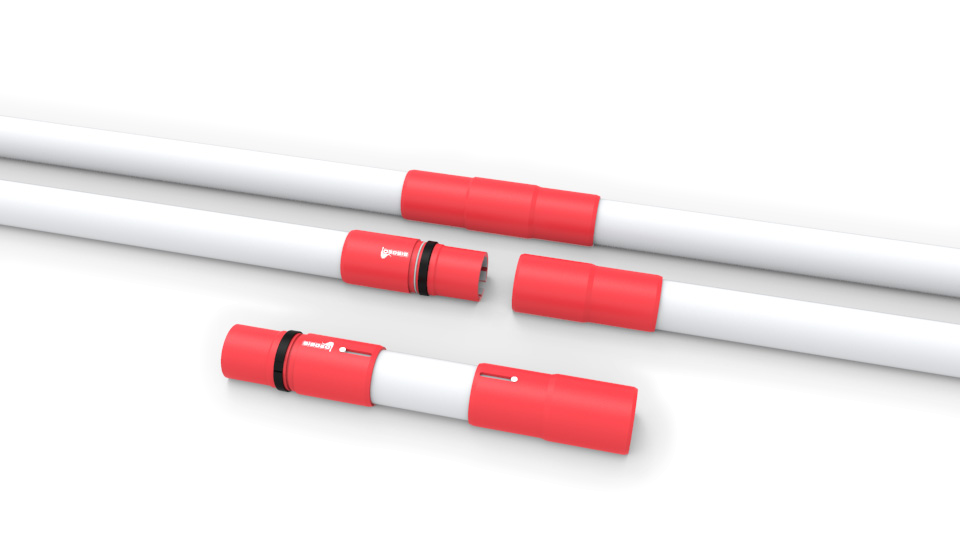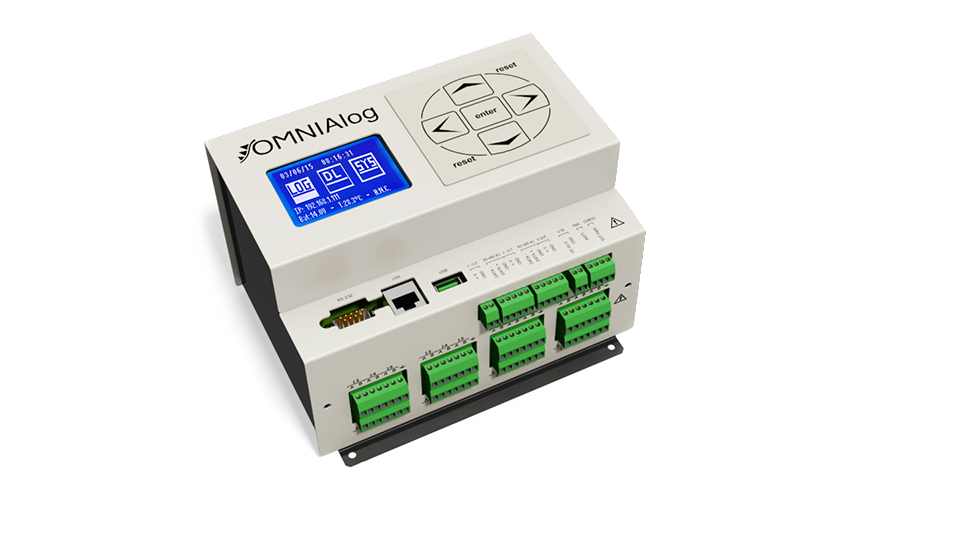This area, where the two DEX columns are installed, is an old waste rock dump site of an open pit coal mine. The depth of the waste is approximately 150 m and consists of alternating layers of silt, sand, gravels, limestone and lignite.
Instruments installed:
• Two QJ quick joint inclinometer columns, 150m length, with 11 DEX magnet rings each
• Two DEX in-place extensometer columns, each one composed by 11 DEX settlement probes
• Two OMNIAlog data loggers with accessories (solar power supply and 3G router)
The scope of the DEX columns is to monitor the settlement of the above strata and evaluate the stability of the surface in order to plan the construction of a new road passing on the surface of the waste dump.
Logging of the borehole during drilling was essential, because the sequence of the layers was not known and large voids were also very likely to be encountered due to decomposition of the lignite.
Grouting of the inclinometer casing was a little bit difficult due to the voids encountered and the high permeability of the sand and gravel layers.
The OMNIA was programmed to take measurements every 12 hours and send with e-mail to selected recipients. The measurements were correlated with the absolute settlement of the surface, measured with surveying instruments.
The analysis of the measurements presents a clear view of the distribution of the settlements with depth and for each layer.
Long term monitoring is necessary in order to decide if it is feasible to proceed to the construction of the new road.
Courtesy of Eurotech SA, Greece (www.eurotech-ltd.gr/en)

